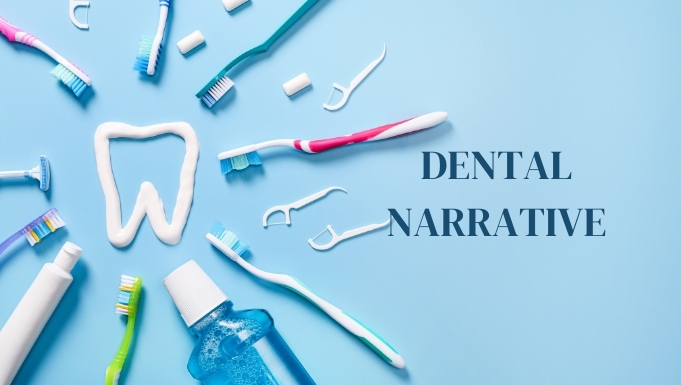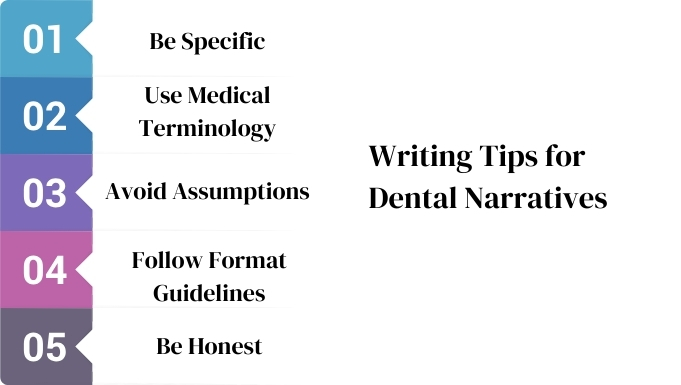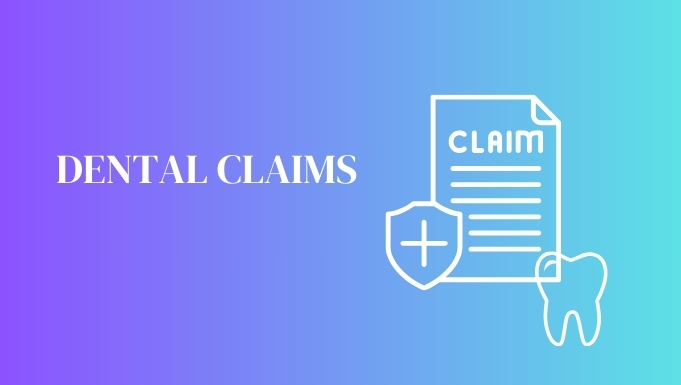When it comes to dental insurance claims, navigating the system can be quite overwhelming for both patients and dental professionals. One key component often overlooked but vital in ensuring claim approval is the dental narrative. This article dives into narratives for dental claims, explaining their significance, tips for writing effective narratives, and why accurate information can lead to faster and successful approvals. Understanding the importance of this process can save time, avoid unnecessary rejections, and ensure that patients receive the care they need.
What Are Dental Narratives?
Dental narratives are detailed explanations provided by dental professionals to support claims submitted to insurance companies. These narratives clarify the medical necessity of procedures, offering context beyond what standard forms provide. Often, insurance forms lack the depth of information needed to justify certain treatments, and this is where the narrative plays a pivotal role.

The Role of Narratives in Dental Claims
Dental narratives serve several purposes:
Justifying Treatment – Dental procedures may not always seem necessary from a claim form, but a well-written narrative explains why they are crucial to a patient’s health.
Reducing Rejections – Submitting claims with detailed narratives reduces the likelihood of rejections or delays. Narratives provide insurers with all the relevant details needed for a claim’s approval.
Faster Approvals – A thorough and clear narrative can result in quicker processing times, as insurance companies are less likely to request additional information.
Insurance providers often rely on minimal details in the forms submitted for dental claims, which can lead to delays or outright denials. Narratives serve as a means to fill in the gaps, detailing the medical necessity, procedure history, and patient-specific factors that make the treatment essential.
Components of an Effective Dental Narrative
A successful dental narrative needs to be clear, concise, and provide relevant information to support the claim. Here are some components that are essential to include in every dental narrative:
Patient’s History: Providing relevant details about the patient’s dental history, including any previous treatments or conditions, is critical.
Procedure Description:The narrative should describe the procedure performed, linking it to the patient’s diagnosis and health condition.
Medical Necessity: Insurance companies need to understand why the procedure is necessary. Outline the medical reasons why the treatment is required.
Supporting Evidence: Any diagnostic images, charts, or other medical data should be referenced in the narrative to further strengthen the case.
By including all these components, dental professionals can ensure that the narratives for dental claims are not just comprehensive but persuasive in obtaining approvals.
Writing Tips for Dental Narratives
Here are a few tips to make your dental narrative stand out and improve the chances of claim approval:
Be Specific: Avoid vague statements. Include precise details about the patient’s condition, the procedure, and why it was necessary.
Use Medical Terminology: Ensure that the language used is clear to an insurance reviewer, who may not have a background in dentistry. However, avoid excessive jargon that may confuse the reader.
Avoid Assumptions: Insurance companies may not have all the facts about a patient’s history or condition, so don’t assume that they do. Lay out the details clearly to eliminate confusion.
Follow Format Guidelines: Some insurance providers may have specific formats or requirements for narratives. Make sure to follow these closely.
Be Honest: Always provide truthful, accurate information. Overstating the necessity of a procedure can lead to a denial, or worse, penalization for false claims.

How Dental Narratives Help Patients
Many patients are unaware of the role that narratives play in the dental insurance process. For them, getting a claim approved seems like a straightforward step. However, without a solid narrative backing the claim, patients may find themselves facing unexpected denials or long delays in approval.
When dentists take the time to craft a detailed narrative for dental claims, they are not only advocating for themselves but also for their patients. A patient’s oral health and financial wellbeing depend on these claims going through smoothly. A good narrative ensures that patients can focus on their recovery rather than worrying about the costs of their treatment.
Common Mistakes in Dental Narratives
Despite their importance, dental narratives are often poorly written or incomplete, which can lead to claim rejections. Below are common mistakes dental professionals make when submitting narratives:
Lack of Detail: A short or vague narrative is likely to raise red flags with insurance companies. It’s important to provide all relevant information.
Failure to Connect Diagnosis with Treatment: The narrative should clearly explain how the diagnosis led to the treatment. Insurance companies will look for a direct connection.
Inconsistent Information: Ensure that the narrative information aligns with other documentation, including the patient’s records and the claim form.
Using Generic Templates: While templates can be helpful, a generic narrative that doesn’t address the patient’s specific situation will likely result in delays or rejections.
The Future of Dental Narratives in the Digital Era
With advancements in digital technology, the landscape of dental narratives is evolving. Automated systems and AI-driven processes are being integrated into insurance claim platforms, aiming to reduce the manual effort required to review dental claims. However, this also means that narratives need to be even more precise and data-driven.
While technology may aid in expediting the claim review process, the need for well-crafted, personalized narratives will always remain. As dental practices continue to digitize their operations, it’s important that the art of writing effective dental narratives is not lost.
Why Narratives for Dental Claims Are Essential for Dentists
Dentists have much to gain by mastering the skill of writing comprehensive dental narratives. Successful claims mean satisfied patients, fewer delays, and a smoother billing process. Investing time in writing these narratives can save the practice significant time and effort in the long run, reducing the back-and-forth with insurance companies and improving cash flow.
Moreover, having the proper narrative skills reflects a high level of professionalism, which can enhance the practice’s reputation with both patients and insurance providers. Dentists who consistently submit detailed and accurate narratives will build trust with insurance companies, leading to faster approvals and fewer questions.
Conclusion
In the healthcare industry, dental narratives play a crucial role in the claims approval process. Their ability to provide clarity and justify treatments is invaluable in ensuring patients receive the necessary care without financial hindrance. By mastering the art of writing detailed, clear, and concise narratives, dental professionals can streamline their billing processes, reduce claim rejections, and maintain high patient satisfaction.
When it comes to submitting dental claims, don’t underestimate the power of a well-written narrative. In an industry where every detail matters, taking the time to perfect your narrative skills is an investment in the success of your practice and the health of your patients.


